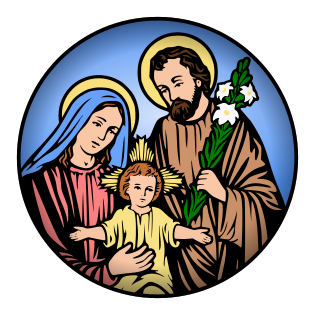31 March 2019 Year C
In Vienna there is a church in which the former ruling family in Austria, the Hapsburgs, are buried. When royal funerals used to arrive the mourners knocked at the door of the church to be allowed in. A priest inside would ask ‘Who is it that desires admission here?’ A guard would call out, ‘His apostolic majesty, the emperor’. The priest would answer, ‘I don’t know him’. They would knock a second time, and again the priest would ask who was there. The funeral guard outside would announce, ‘The highest emperor’. A second time the priest would say, ‘I don’t know him’. A third time they would knock on the door and the priest would ask ‘Who is it?’ The third time the answer would be, ‘A poor sinner, your brother.’ And the doors of the church would open. In the ancient world, for a son to ask for his inheritance before the death of his father was unheard of … it was as if he was saying to his father – “you’re dead to me, I want nothing to do with you or this family.” The son chooses to distance himself from his home and family … this is what sin is – it is to distance ourselves from God. The German word for ‘sin’ is ‘sundë’ – to rent asunder, break apart, cause division … this son tears himself apart from his rightful place, from his rightful home – where he belongs.
We are all familiar with the expression – “the grass is greener on the other side of the fence.” Perhaps that is what the son was thinking… perhaps he was hurt by something and decided it was time to leave. Maybe it was the brother … maybe it was the father … But then, something interesting happens … St Luke tells us that the son came “to his senses.” Literally – from the Greek – “he came into himself.” Jesus uses this extreme example just to illustrate the nature of sin and the effects it has on the soul… That when we sin we are not ourselves, we have “missed” the mark – but here we are told “he came into himself” and returned to where he belonged. That was a bold move considering the culture of the time – essentially telling the family: “you’re dead to me” … to return under those circumstances was courageous. But he realized to be himself he belonged home – his true home…
The courage of the son to get up – literally “to rise up” … incidentally it is the same word to describe the resurrection! He came to himself, he came to life through the desire and the pursuit of reconciliation … and it gives the father the opportunity to display extraordinary mercy … symbolic of the mercy of God the Father. Reconciliation means ‘to walk together again with’ – and this is precisely that which is achieved in this parable … father and son walk together again in right relationship.
Now this says something to us … as one priest once reminded his people – church is for sinners. The open arms of the father are symbolic of the open doors of the church, that welcomes the sinner back to our rightful place, the place where we truly belong – walking in right relationship with God and one another. Confession is the means for this ….God meets us here, in this place, with His grace and mercy … Confession helps us to recognize where we miss the mark, where we fail to love … our shortcomings and faults – not to punish the sinner but so that God might show us His divine power and goodness in pardoning and showing mercy … we have to be like the prodigal son – pursue reconciliation, pursue God’s mercy … and thus rise up, come to life … becoming more fully our true selves.
